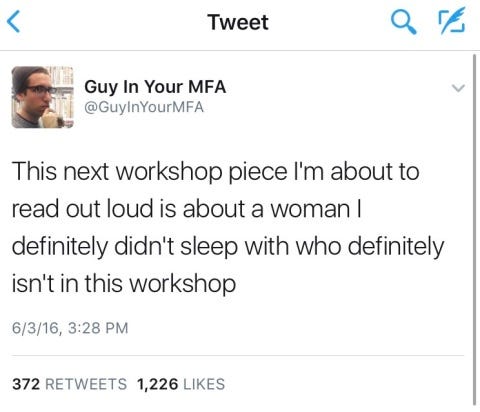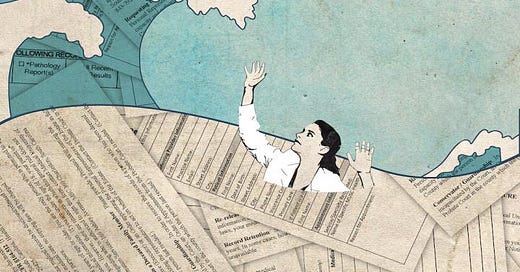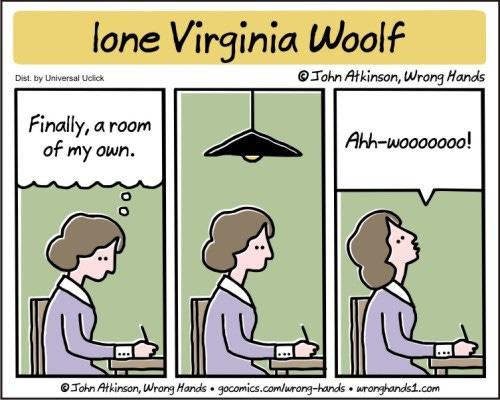If you’re reading this in real-time as the holidays are drawing near and a million emails are wooing you with sales and offers—first off, thank you for taking the time to being here.
Today’s about setting an intention for myself and for the future of Nervous Wreckage. And I how I intend to find a way to fit it into my creative workflow rather than having my creative workflow crammed into what Substack wants Nervous Wreckage to be.
There is a saying amongst writers of a certain generation or ilk that you are not a writer unless you write everyday.
The writing schedules of famous writers are fetishized, weaponized against us seeming dilettantes: this NYT bestseller wakes at 5am and writes continuously until noon with only a coffee for company. This Pulitzer Prize winner writes her novels while listening to bluegrass on a Victrola at high noon. This literary Twitter fave wrote their great American novel on their lunch break over the course of fifteen years at a dead-end office job.

I’ve always bristled at this idea that writing everyday (or doing anything you love everyday) is the only way to be a Good Writer or a Real Writer or a Serious Writer. That anything less is undisciplined, unserious, and disdainful. It’s always felt lile a lurid extension of the Protestant work ethic applied to creative work. And it has always stoked anxiety in me—how dare I relax when I could be writing? How dare I mess around on the internet when I could be submitting work or pitching publications? How dare I spend time with friends when I could be revising my work yet again? In other words, how dare I find pleasure and meaning in anything else but my writing?
But I did try. I used to write on my lunch breaks when I worked at corporate jobs. I took inspiration from The Artist’s Way and tried to write three pages a day, without stopping, just putting down what came into my head without self-editing. I woke up early to write essays and weird short stories. I jotted down ideas, sentences, paragraphs while crammed between sour-breathed strangers on rush hour subways. I stayed up late reading and rereading and revising and editing. But oftentimes I hit a wall: exhaustion, frustration, or disappointment (or a combination of those things) given my own limited energies.
We all know that the writerly men who put forward this idea decades ago were ones who had wives cleaning their house and raising their children and cooking their dinner as they drank whiskey alone in their study with a cigarette dangling from their lips. And honestly, I should know better than to trust their take on things.
By this imposed metric of writing everyday, anyone who cannot write everyday because they are raising small humans or working more than one job or caretaking or trying to keep their head above water is already a failure. Without a stay-at-home spouse and a trust fund, you’re fucked. So much for a room of your own, Virginia Woolf.
So why am I talking about this now?
Well, this newsletter is three years old now. It’s almost potty-trained (is that how toddlers work)? And I find myself both loving this newsletter writing and exhausted by it. Meaning I fall behind, and I feel ashamed, because Substack has made clear that the only way to gain traction here is to Pump Out Content All the Time and Engage Your Audience and Put Out More Notes and Threads and Whatever.
That’s why I went from twice per month to once a week. I wanted to grow my audience. And I have! But this newsletter has been an ever-growing work-in-progress, and I think it’s time for another change.
Because I want to succeed! I’ve loved getting to know many of you—once strangers!—through this little ol’ newsletter. In fact, I’d say I have succeeded! But not by the metrics everyone else has for me and for my work. And I have to find a way for this to stay sustainable.
I’ve been trying to pay attention to the natural cadences that work best for me in a lot of areas of my life. My body, my career, and my creative desires have all evolved in my early 30s. This has all come to a head this past fall as I started a full-time teaching position. Truthfully, juggling my writing and teaching and this newsletter has been tough. I plan to spend a good portion of this break working on longer writing projects, which I’m excited to dive into, knowing I’ll go as far as I can until I can’t anymore, and the next semester picks up speed.
I’m figuring out what works, and to be honest, once a week might be best for the Almighty Algorithm, but not for me. Why fight the rhythm that has brought me here—creatively, personally, and professionally?
After all, full-time teaching has reminded me how I work best. I love the school year because its several months of intensive, exhausting work (that I love) with extended breaks. I return feeling refreshed and ready to commit to intensity.
Because I love intensity. To an extent, I thrive on it. I tend to hyper-fixate on things, obsess and binge and lose myself. Hell, I’m writing this right now in my Notes App at 10:37pm because I just need to do it now, right now, in one go, and I promised myself I’d do this and cook a healthy dinner and do laundry tonight and lo and behold I’ve nearly done it all and it feels nearly satisfying.
This intensity makes me good at the things I’m passionate about, like writing. But it also means I burn bright until I burn out. Then I have to step away so I can come back better and clearer.
Rather than fighting this, I want to embrace it more in 2024. I want to cultivate a writing practice that celebrates my productive and creative bursts while also celebrating rest. I want to find a way to make this newsletter function in a way that doesn’t go against my natural workflow and doesn’t insult my own abilities.
In other words, starting in January 2024, I’ll be writing in seasons. Like your fave TV series or podcast, I’m planning to put out 4-6 newsletters per “season” with at least a month’s break in between.
It’s an experiment, and it may fail, and lord knows the algorithm will likely shun me for it. But I’d rather keep reaching you all—who I sincerely adore—for a long, long time to come, if you’ll let me.
If you made it this far, and you’re still here: thank you. Writing about anxiety in its many permutations is a dream and a privilege that I want to keep going for as long as I can. Thanks for sticking with me on this journey if you still care to, and for all you’ve done to make NW such an exciting space in the future.
Once more, with feeling: thank you, all.






